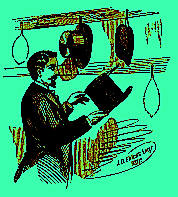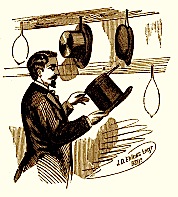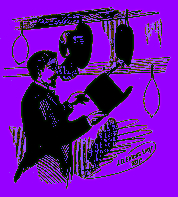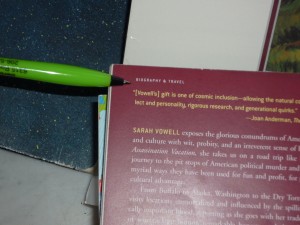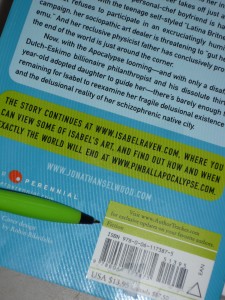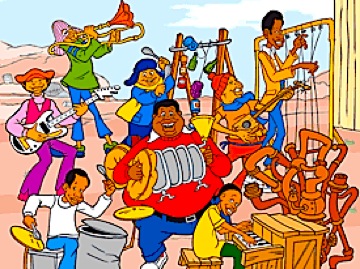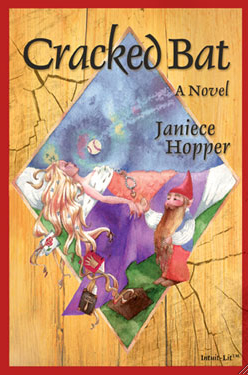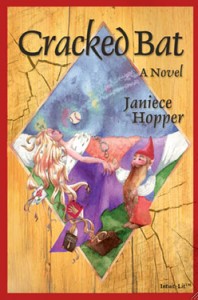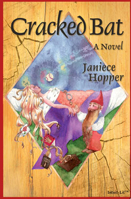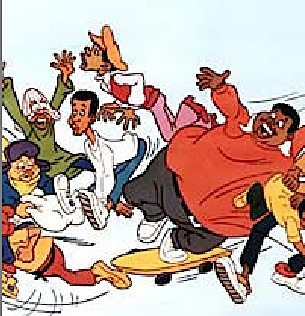
Before I launch into our latest installment of Querypalooza, I’d like to ask for a moment of silence, please. (Which shouldn’t be terribly difficult for those of you reading this in the middle of the night, should it?) All of us here at Author! Author! would like to sent out a heartfelt RIP to Larry Ashmead, editor to such science fiction luminaries as Isaac Asimov. Mr. Ashmead was one of the great eclectic-minded editors, known for taking chances on first books simply because — gasp! — he fell in love with them.
His background was eclectic, too: as his AP obituary notes, “He received a doctorate in geology from Yale University, but decided he preferred geology to geologists and chose to work in publishing, his 43-year career beginning at Doubleday and ending with his retirement from HarperCollins in 2003.” This kind of leap from academia to publishing used to be charmingly common; for smart, well-read people, it seemed like a natural next step.
May you enjoy the extensive libraries of the afterlife, Mr. Ashmead. Do say hello to Mark Twain for me.
Back to the business at hand. In our last thrilling installment of Querypalooza, we began going through a list of questions intended to help you steer clear of the most common querying mistakes. So far, our troubleshooting list has concentrated upon length and tone. Tonight, however, I would like to shift our focus toward the more market-oriented aspects of the query.
And half of you just tensed up, didn’t you? Not entirely surprising: for many, if not most, aspiring writers, marketing is a dirty word. You can’t throw a piece of bread at a circle of writers without hitting someone who will insist that writing for the market is the moral opposite of writing for art’s sake.
To a professional writer, the market/art split is a false dichotomy. There’s plenty of marvelous writing that’s done very well commercially. And it would be surprising if most aspiring writers weren’t aware of that: as a group, after all, we’re some of the most devoted readers of the already-published, right?
Besides, insisting that thinking seriously about who is going to buy your work is tantamount to selling out is self-defeating for a writer trying to land an agent. Knowing something about how books are sold is not optional for an author working with an agent or editor; it’s a prerequisite. (If you are brand-new to the process, you might want to set aside some time to peruse the HOW DO MANUSCRIPTS GET PUBLISHED? category on the archive list at right.)
If you don’t want to make a living at it, of course, you needn’t worry about marketing realities. Writing for your own pleasure, and that of your kith and kin, is a laudable pursuit. I would never knock it. But if you want total strangers to buy your work, you are going to have to think about how to market it to them.
And that means learning to speak the language of the industry, at least enough to describe your work in terms that every agent, editor, and screener will understand. To do that, you’re going to need to give some thought to what your book is about, who you expect to read it, and where it might sit on a shelf in a brick-and-mortar bookstore.
Not to frighten you, but you’re also going to have to be able to convey all of this information within a few sentences.
Query letters are, after all, brief — and may not have even an entire page of Millicent’s attention to make their cases. To crank up the broken record player again,
The vast majority of queries are not read in their entirety before being rejected. Therefore, the first paragraph of your query is one of the very few situations in the writing world where you need to TELL, as well as show.
So let’s turn our attention to the crucial information in that first paragraph. To our muttons!
(5) Is it clear from the first paragraph that I am querying the appropriate agent for my work?
Why is it so VERY important to make absolutely certain that this information is clearly presented in the first paragraph?
If your first paragraph doesn’t tell Millicent either that the book in question is in fact the kind of book her boss is looking to represent or another very good reason to query him (having spoken to him at a conference, having heard her speak at same, because she so ably represented Book X, etc.), she is very, very likely to shove it into the rejection pile without reading any farther.
Don’t groan over the amount of research this may entail — indiscriminate querying is not likely to match you up with the best agent for your work. Besides, in order to personalize each query, you need to come up with only one or two reasons for picking this particular agent.
Remember our two examples from last time, where Flaubert accidentally mixed up one agent’s name and background with another’s? It contained some good reasons, couched in some restrained praise. To refresh your memory, he sent this:
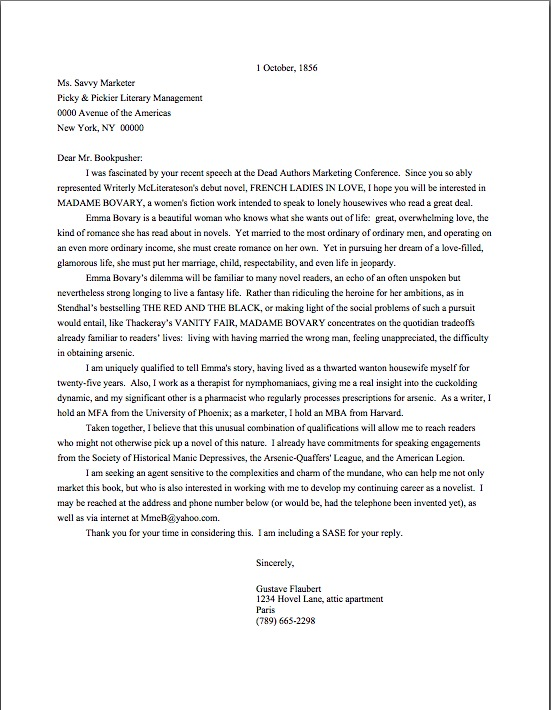
When he intended to send this:
Despite our Gustave’s momentary inattention to critical detail, he had essentially the right approach in both letters: he devoted the opening sentences of his various queries to telling each agent why he was querying him or her, rather than simply sending the same letter to everybody. In fact, he brought up two perfectly adequate for each: for Ms. Marketer, he mentioned both an article she had written and a book she had successfully represented; for Mr. Bookpusher, he brought up having heard him speak at a conference — and a book Ms. Marketer had successfully represented.
Again: proofread before you send it out. Every time, without exception.
Agents-who-blog make this kind of opening quite easy for queriers: all you have to do is mention that you’re a fan. Do be absolutely positive before embracing this tactic, however, that you have read enough of the blog in question to know what the agent has said she is looking for in a query or book project. Trust me, AWBs’ Millicents already see enough queries from people who make it quite plain that all they know about the blogging agent is her name.
Don’t hesitate to mention if you attended a conference where the agent spoke: traditionally, conference attendance is considered a sign that a writer is serious about learning how the publishing business works. (Which is kind of funny, actually, as so many writers’ conferences focus far more on craft than practical issues like manuscript preparation and submission. You’d be amazed at how often conference organizers have asked incredulously, “You want to teach a two-hour seminar on formatting? What on earth for? Isn’t everybody already familiar with professional standards?”) Even now, when so many writers are gleaning their knowledge from the Internet, many agents still tell attendees to include the conference’s name in the first line of the query, the subject line of the e-query, or both.
It’s worth using as an entrée even if you did not get a chance to interact with him at all. At a large or snooty conference, it’s not always possible — and even if you do manage some face-to-face time, the agent may well be meeting so many aspiring writers in so short a time that he may not remember every individual. So don’t be shy about reminding him that you were a face in the crowd.
(6) Is it clear from the first paragraph what kind of book I am asking the agent to represent?
This may seem like a silly question, but it’s jaw-dropping how many otherwise well-written query letters don’t even specify whether the book in question is fiction or nonfiction. Or the book category. Or even, believe it or not, the title.
Quoth Millicent: “Next!”
The book category, the most straightforward way to talk about your writing in professional terms, is the most often omitted element. And that’s a shame, because in either a query or a pitch, the more terse and specific you can be about your book’s category, the more professional you will sound.
Why terse? Well, mostly because book categories tend to be only one or two words long: historical romance, science fiction, urban fantasy, women’s fiction, Highland romance, YA paranormal, Western, literary fiction, memoir, and so forth. In fact, these terms are so concentrated that it’s very, very easy to annoy Millicent by adding unnecessary adjectives or explanation: literary fiction novel or science fiction novel are technically redundant, for instance, because all novels are fiction, by definition. By the same logic, true memoir, real-life memoir, and memoir about my life are all needlessly repetitive descriptions.
The sad thing is, the widespread tendency among both queries and pitchers is in the opposite direction of terseness — or even using the terminology that agents themselves use. As much as writers seem to adore describing their work as, “Well, it’s sort of a romance, with a thriller plot, a horror villain, and a resolution like a cozy mystery,” agents and editors tend to hear ambiguous descriptions as either waffling, a book’s not being ready to market, or the writer’s just not being very familiar with how the industry actually works.
Which means, incidentally, that within the query, you might want to avoid those ever-popular terms of waffle, my writing defies categorization, my book is too complex to categorize, my book isn’t like anything else out there, no one has ever written a book like this before, and that perennial favorite of first novelists, it’s sort of autobiographical.
Which, translated into industry-speak, come across respectively as I’m not familiar with how books are sold in North America, I don’t know one book category from another, I’m not familiar with the current market in my area of interest — which means, Mr. Agent, that I haven’t been buying your clients’ work lately, I’m not familiar with the history of the book market in my area, and I was afraid people would hurt me if I wrote this story as a memoir.
Don’t blame the translator, please: the writers and the agents are just not speaking the same language.
Contrary to popular opinion, picking a conceptual box for your work will not limit its market appeal; it will simply tell Millicent which shelf at Barnes & Noble or category on Amazon you expect to house your book. It honestly is that simple. You really do not need to stress out about the choice nearly as much as most aspiring writers do.
So take a nice, deep breath and consider: what books currently on the market does my book resemble? How are these books categorized?
“But Anne,” I hear the more prolific among you protest, “I write in a number of different book categories, and I’m looking for an agent to represent all of my work, not just some of it. But won’t it be confusing if I list all of my areas of interest at the beginning of my query?”
In a word, yes — and generally speaking, it’s better strategy to query one book at a time, for precisely that reason. If you like (and you should like, if you have a publication history in another book category), you may mention the other titles later in your query letter, down in the paragraph where you will be talking about your writing credentials. It will only render you more memorable if you are the science fiction writer whose query included the immortal words, Having twenty-seven years’ experience as a deep-sea archeologist, I also am working on a book on underwater spelunking.
But in the first paragraph, no. Do you really want to run the risk of confusing Millicent right off the bat about which project you are trying to sell? Terseness is your friend here.
(7) Does my letter sound as though I am excited about this book, or as if I have little confidence in the work? Or does it read as though I’m apologizing for querying at all?
We all know that writing query letters is no one’s idea of a good time. Well, maybe a few masochists enjoy it (if they’re really lucky, maybe they can give themselves a paper cut while they’re at it), but the vast majority of writers hate it, hate it, hate it.
Which, unfortunately, can translate on the page into sounding apprehensive, unenthusiastic, or just plain tired. While query fatigue is certainly understandable, it tends not to produce a positive tone for presenting your work.
Insecurities, too, show up beautifully on the query page. While the writer’s opinion of her own work is unavoidably biased, in my experience, that bias tends to be on the negative side for most. We’ve all heard a lot about queriers who make overblown claims about their work (This book will revolutionize fiction!, This is a sure-fire bestseller!, or that perennial favorite, It’s a natural for Oprah!), but apologetic openings like I’m so sorry to bother you,, Pardon me for taking up your time,, and This may not be the kind of book that interests you, but… turn up on Millicent’s desk more often than you’d think.
Much of the time, this sad-sack tone is the result of query fatigue. I know that repeated rejection is depressing and exhausting, but it really is in your best interest to make an effort to try to sound as upbeat in your seventeenth query letter as in your first.
No need to sound like a Mouseketeer on speed, of course, but try not to sound discouraged, either. And never, ever, EVER mention how long you’ve been querying, how many agents have already rejected this project, or how hard it has been emotionally. It’s unprofessional. A query is not the place to express frustration with the querying process; save that for lively conversation with your aforementioned significant other, family members, and friends.
While it is a nice touch to thank the agent at the end of the query for taking the time to consider your work, doing so in the first paragraph of the letter and/or repeatedly in the body can come across as a tad obsequious. Begging tends not to be helpful in this situation. Remember, reading your query is the agent’s (or, more likely, the agent’s assistant’s) JOB, not a personal favor to you.
No, no matter HOW long you’ve been shopping your book around. Speaking of overly-effusive politeness,
Of you have already pitched to an agent at a conference and she asked you to send materials, you do not need to query that same agent to ask permission to send them, unless she specifically said, “Okay, query me.”
To the pros, being asked over and over again whether they REALLY meant that request is puzzling and, if it happens frequently, annoying.
Many conference-goers seem to be confused on this point. Remember, in-person pitching is a substitute for querying, not merely an expensive extension of it.
This remains true, incidentally, even if many months have passed since that pitch session: if it’s been less than a year since an agent requested pages, there is absolutely no need to query, call, or e-mail to confirm that she still wants to see them. (If it’s been longer, do.)
(8) Does my book come across as genuinely marketable, or does the letter read as though I’m boasting?
In my many, many years of hanging out with publishing types, I have literally never met an agent who could not, if asked (and often if not), launch into a medley of annoyingly pushy, self-aggrandizing query letter openings he’s received. As I may have mentioned already,
Every agent and screener in the biz already seen a lifetime’s supply of, “This is the greatest work ever written!”, “My book is the next bestseller!”, and “Don’t miss your opportunity to represent this book!” Such inflated claims make a manuscript seem LESS marketable, ultimately, not more.
Trust me, they don’t want to hear it again. Ever.
So how do you make your work sound marketable without, well, just asserting that it is? Glad you asked.
(9) Does my query make it clear what kind of readers will buy my book — and why?
Few queries address this point, but to folks who speak publishing’s lingua franca, it’s simply not possible to talk about a manuscript without considering these questions. So you’ll reap the benefits of both professional presentation and comparative rarity if your query identifies your target market clearly, demonstrating (with statistics, if you can) both how large it is and why your book will appeal to that particular demographic.
Trust me, Millicent is going to respond quite a bit better to a statement like MADAME BOVARY will resonate with the 20% of Americans who suffer from depression at some point in their lives than Every depressed woman in America will want to read this book! She sees the latter type of claim on a daily — or even hourly — basis and discounts it accordingly. At best, such claims come across as exaggerations; at worst, they look like lies.
Why might she think that? Well, logically, a claim like Every depressed woman in America will want to read this book! could not possibly be true. No book appeals to everyone in a large demographic, and nobody knows that better than someone who works within the publishing industry. Far, far better, then, to make a realistic claim that you can back up with concrete numbers.
I’m not talking about publishing statistics here; I’m talking about easy-to-track-down population statistics — and that comes as a big surprise to practically every aspiring writer who has ever taken my pitching class. “Why,” they almost invariably cry, “shouldn’t I go to the trouble to find out how many books sold in my chosen category last year? Wouldn’t that prove that my book is important enough to deserve to be published?”
Well, for starters, any agent or editor would already be aware of how well books in the categories they handle sell, right? Mentioning the Amazon numbers for the latest bestseller is hardly going to impress them. (And you’d be astonished by how many agents don’t really understand how those numbers work, anyway.)
Instead, it makes far more sense to discover how many people there are who have already demonstrated interest in your book’s specific subject matter. I feel a golden oldie coming on:
No book ever written appeals to every conceivable reader — or can be represented effectively by any randomly-selected agent. While your future publisher’s marketing department will undoubtedly have ideas about who your ideal reader is and why, it’s far, far easier to talk about your book professionally if you first take the time to figure out what kind of readers are in your target audience.
The term target audience made some of you tense up again, didn’t it? As scary as it may be to think about, if you are going to make a living as a writer, you will be writing for a public. In order to convince people in the publishing industry that yours is the voice that public wants and needs to hear, you will need to figure out who those people are, and why they will be drawn toward your book.
Let’s start off with a nice, non-threatening definition of terms. What is a target audience?
Simply put, the target audience for a book is the group of people most likely to buy it. Not just a segment of the population, mind you, but readers who are already in the habit of buying books like yours. That’s why it is also known as a target market: it is the demographic (or the demographics) toward which your publisher will be gearing advertising.
So I ask you: who out there needs to read your book and why?
If that question leaves you a bit flummoxed, you’re certainly not alone — most fiction writers and nearly all memoirists initially have a difficult time answering that question about their own work. First-time memoirists are notorious in their first panic to answer huffily, “Well, obviously, the book’s about me.”
Yes, that is obvious, now that you mention it. But what else is the memoir about? Even the most introspective memoir is about something other than its author.
Fiction writers, too, tend to stumble over the answer. “Well, people will read it for the writing, obviously,” novelists mutter. “Isn’t that enough? It’s sort of based on something that really happened, if that helps.”
Of course, lovely writing is going to be one of a good novel’s attractions, but every book category has well-written books in it. Well-crafted sentences are expected in professional writing. But unless you are planning to market your book as literary fiction — i.e., a novel where the beauty or experimental nature of the writing and exquisitely-examined character development are the book’s primary selling points — nice writing, which of course a plus, is not much of a descriptor. (Besides, literary fiction is a relatively tiny portion of the fiction market, usually coming in around 3-4%. Why so small? It assumes a college-educated readership.)
What makes it a poor descriptor? It does not answer the central questions of a query letter: what is your book about, and who needs to read it?
Or, to put in the terms Millicent might: what are the potential readers for this book already reading? Why are they reading it? What about this book is likely to appeal to those same readers?
But let’s not get ahead of ourselves. Your book is about something other than its protagonist, right? That something has probably been written about before — so why not find out how those books were marketed, to glean inspiration about how to market yours? (As Pablo Picasso was reportedly fond of saying, “Bad artists copy. Good artists steal.”)
Or you can approach it even more straightforwardly: pick an element of your story that might make your ideal reader pick up your book. It’s set on a farm; the protagonist’s sister has multiple sclerosis; the characters keep going to a drive-in movie theatre. Any running theme is legitimate subject matter for marketing purposes.
Then ask yourself: who might be interested in this subject? How many small family farms are there in the US? Just how many people have multiple sclerosis? Who is likely to remember drive-in theatres fondly?
Getting the picture? Might not people who are already interested in that topic — and, ideally, are already demonstrating that interest by buying books about it — be reasonably regarded as potential readers for your book? What books do these readers already buy? Who are their favorite living authors, and what traits do your books share with theirs?
While we’re at it, who represents these readers’ favorite authors, and would those agents be interested in your book?
Is tracking down all of this information bound to be a lot of work? Yes, possibly, but as the Internet has made performing such research quite a bit easier than it was at any previous point in human history, you’re probably not going to garner any sympathy from Millicent. (Word to the wise: just because information is posted online doesn’t mean it is true; it’s worth your while to double-check with credible sources. Why, just last month, a Wikipedia spokesperson told an interviewer that the site is not intended to be anyone’s only source of information; it’s designed to give an overview of a subject.) But just as performing background research on who agents are and what they represent will enable you to target your queries more effectively than indiscriminate mass mailings to everyone who has ever sold a book in your book category, doing a bit of digging on your target audience before you send out your queries will save you time in the long run.
Still at a loss about how to begin about gathering this data, or even what information you should be gathering? As it happens, I’ve written about these issues at some length — and have carefully hidden the relevant posts under the obscure monikers IDENTIFYING YOUR TARGET MARKET and YOUR BOOK’S SELLING POINTS in the category list at right. Those posts should give you quite a bit of material for brainstorming.
Do I hear some disgruntled muttering out there? “I’m not a marketer; I’m a writer,” I hear some of you say. “How the heck should I know who is going to buy my book? And anyway, shouldn’t a well-written book be its own justification to anyone but a money-grubbing philistine?”
Well, yes, in a perfect world — or one without a competitive market. But neither is, alas, the world in which we currently live.
As nice as it would be if readers flocked to buy our books simply because we had invested a whole lot of time in writing them, no potential book buyer is interested in EVERY book on the market, right? There are enough beautifully-written books out there that most readers expect to be offered something else as well: an exciting plot, for instance, or information about an interesting phenomenon.
To pitch or query your book successfully, you’re going to need to be able to make it look to the philistines like a good investment.
And before anybody out there gets huffy about how the industry really ought to publish gorgeously-written books for art’s sake alone, rather than books that are likely to appeal to a particular demographic, think about what the pure art route would mean from the editor’s perspective: if she can realistically bring only 4 books to press in the next year (not an unusually low per-editor number, by the way), how many of them can be serious marketing risks, without placing herself in danger of losing her job? Especially in this economy, when the major publishers have been trimming their editorial staffs.
As with choosing a book category, it pays to be specific. For one thing, it will make your query stand out from the crowd. And PLEASE, for your own sake, avoid the oh-so-common trap of the dismissive too-broad answer, especially the ever-popular women everywhere will be interested in this book; every American will want to buy this; it’s a natural for Oprah. Even in the extremely unlikely event that any of these statements is literally true in your book’s case, agents and editors hear such statements so often that by this point in human history, they simply tune them out.
Make sure your target market is defined believably — but don’t be afraid to use your imagination. Is your ideal reader a college-educated woman in her thirties or forties? Is it a girl aged 10-13 who doesn’t quite fit in with her classmates? Is it an office worker who likes easy-to-follow plots to peruse while he’s running on the treadmill? Is it a working grandmother who fears she will never be able to afford to retire? Is it a commuter who reads on the bus for a couple of hours a day, seeking an escape from a dull, dead-end job?
While these may sound like narrow definitions, each actually represents an immense group of people, and a group that buys a heck of a lot of books. Give some thought to who they are, and what they will get out of your book.
Or, to put a smilier face upon it, how will this reader’s life be improved by reading this particular book, as opposed to any other? Why will the book speak to her?
Again, be as specific as you can. As with book category, if you explain in nebulous terms who you expect to read your book, you will simply not be speaking the language of agents and editors.
Try to think of learning to speak this language as less of an annoying hurdle than as another step toward assembling a serious writer’s bag of marketing tools, a collection that will, I hope, serve you well throughout the rest of your writing life. Learning to figure out a book’s ideal readership, how to identify a selling point, coming to describe a book in the manner the industry best understands — these are all skills that transcend the agent-finding stage of a writer’s career.
More thoughts on marketing your work follow at 10 am. In the meantime, keep up the good work!
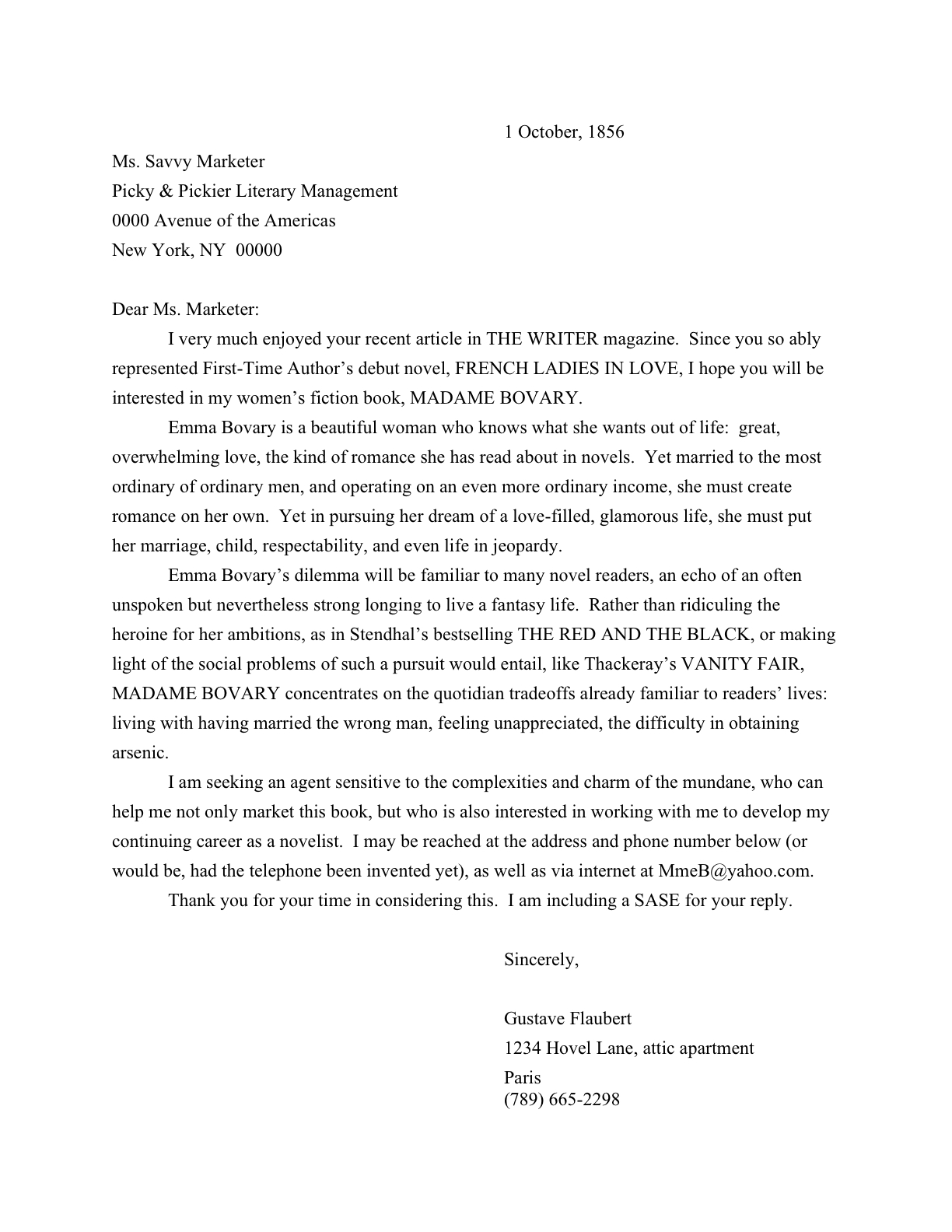
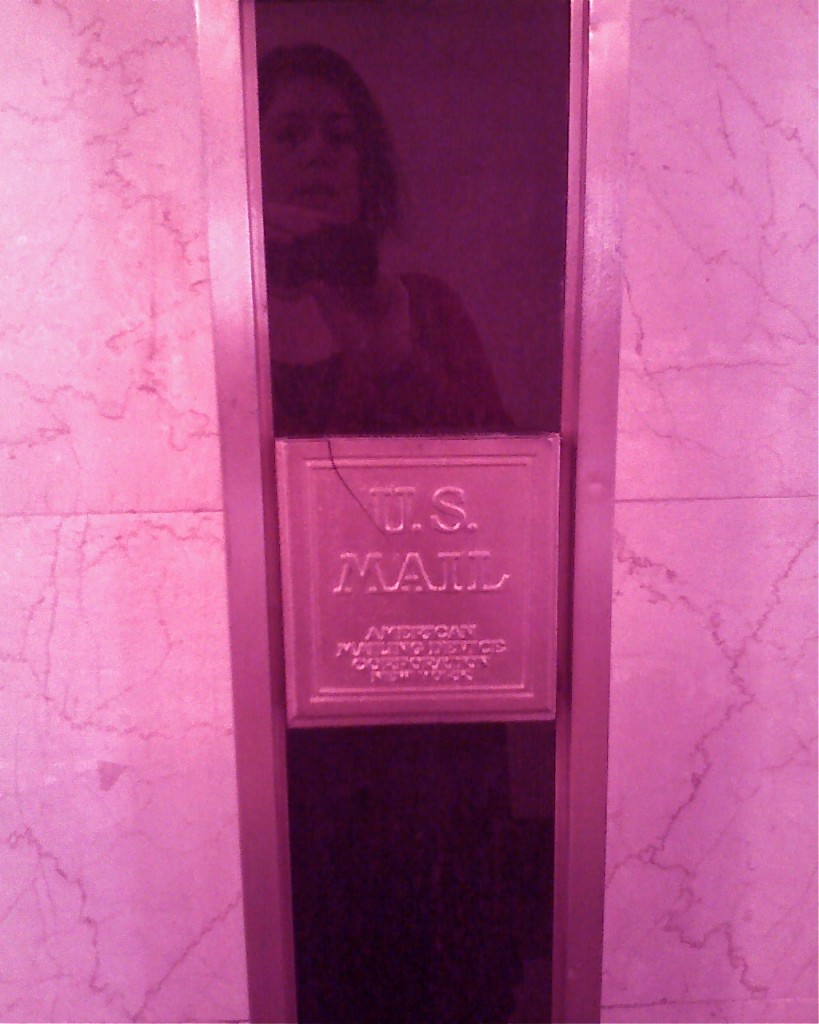


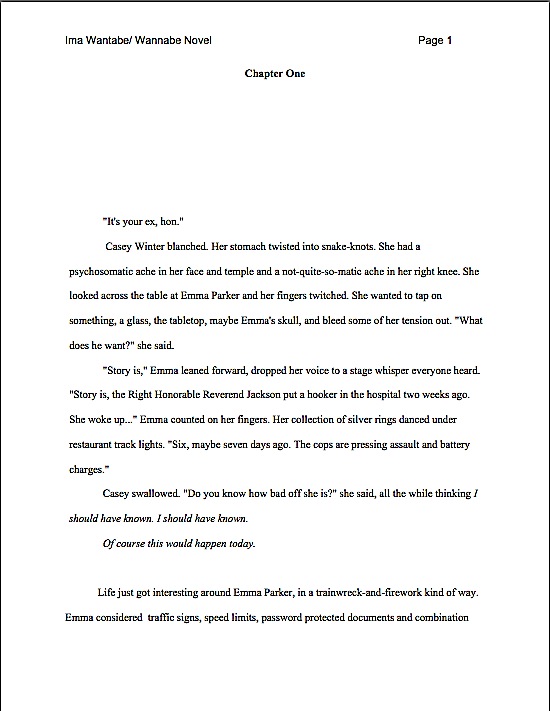
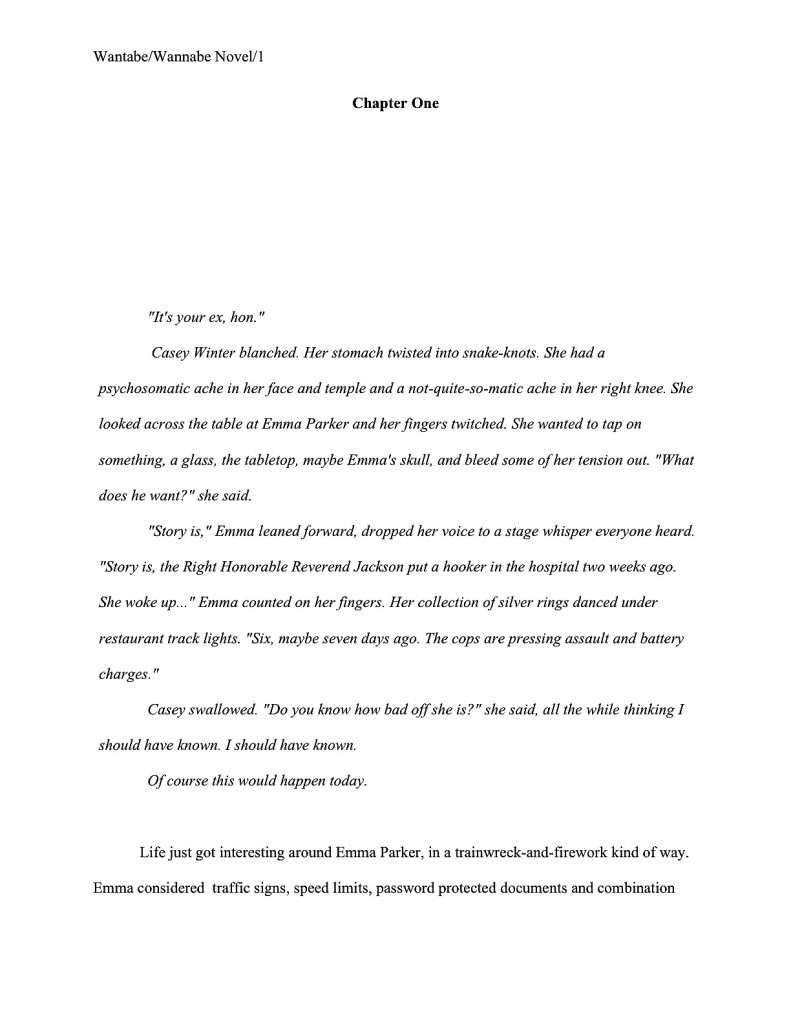
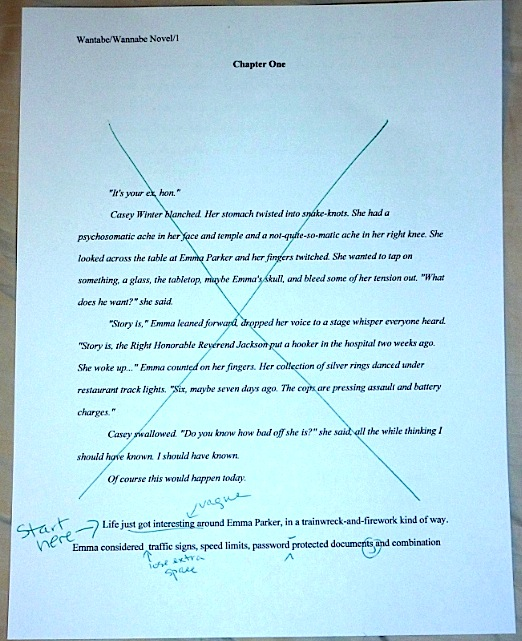
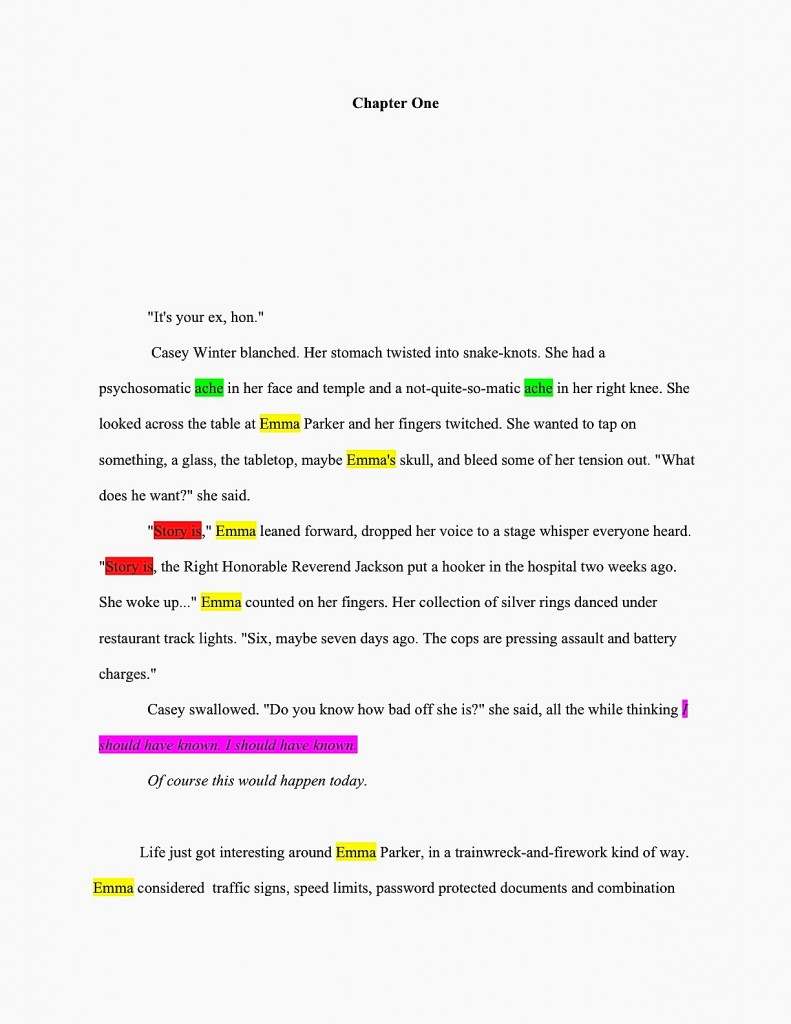
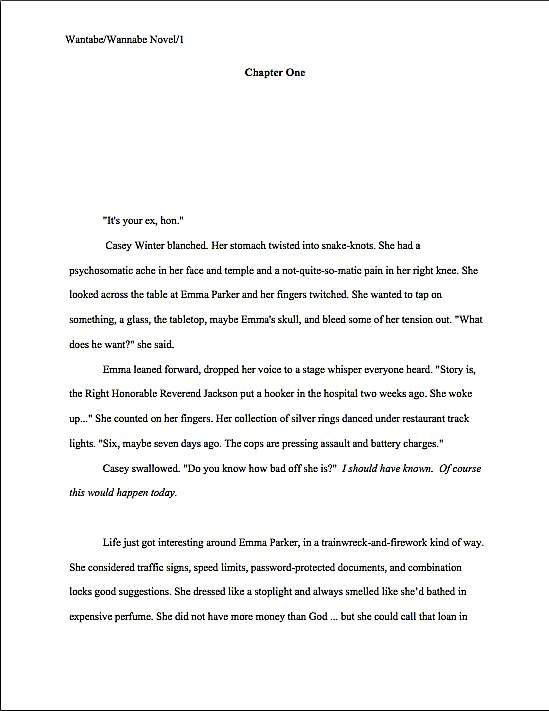

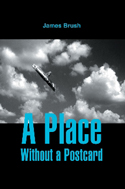
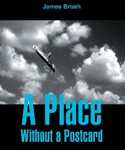 Paul Reynolds, a photographer who creates fake photos for tabloid magazines, wakes up with no idea where he is or how he got there. He can’t even recall his name. A strange man lurks nearby, breathing heavily and slowly flipping through a book. Paul hears the man’s breath, but he cannot see him. He realizes with mounting panic that his eyes no longer function.
Paul Reynolds, a photographer who creates fake photos for tabloid magazines, wakes up with no idea where he is or how he got there. He can’t even recall his name. A strange man lurks nearby, breathing heavily and slowly flipping through a book. Paul hears the man’s breath, but he cannot see him. He realizes with mounting panic that his eyes no longer function.

